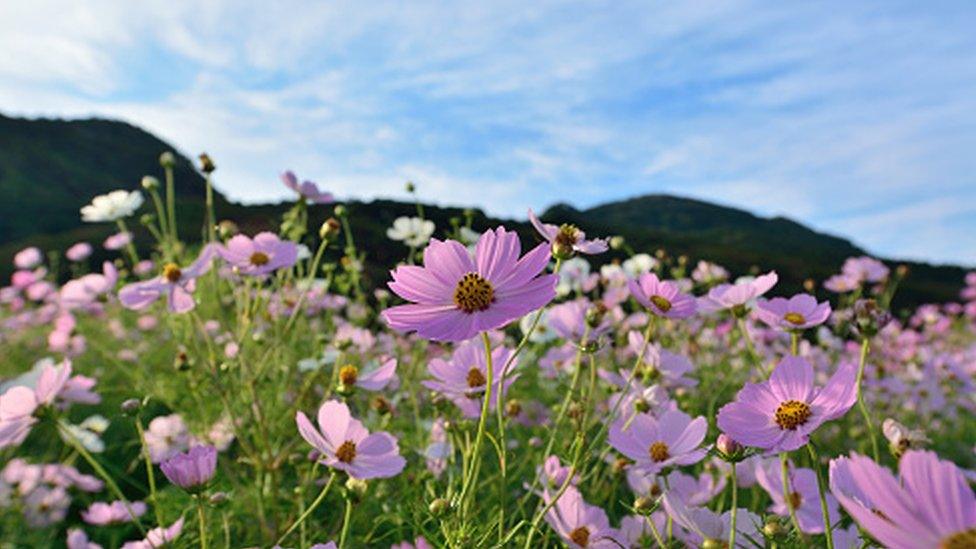Hay fever 2024: What is it and how can you treat the symptoms?
- Published
- comments
How does weather affect pollen and hay fever?
It's officially summer! But as the weather is starting to feel warmer and flowers are in bloom, it also means that more pollen is in the air.
And with pollen comes hay fever, which can mean a runny nose and itchy eyes for many people, especially if you're outside more often in the sunny weather.
According to the Met Office, which is the UK's national weather service, pollen levels will be much higher over the next five days, with differences depending on where you live.
But what exactly is hay fever and what are the ways we can improve symptoms? Read on to find out.
What is the pollen count?
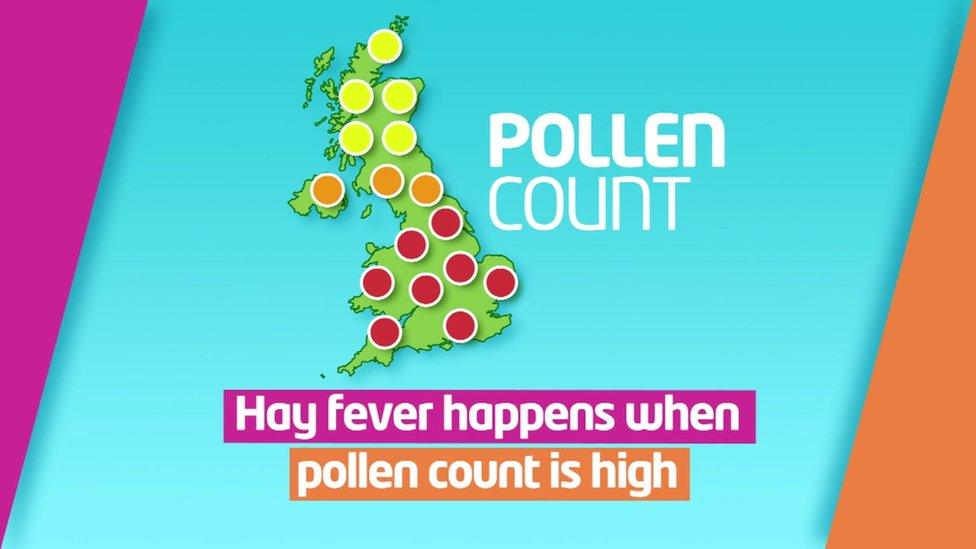
People with hay fever can check how high the levels of pollen in the air are by watching special weather reports.
As well as telling you about the weather, presenters can also give a pollen count, to warn people when the levels are high.
Most areas of England are predicted to have a very high pollen count over the week and going into the final weekend of June, with Wales and Northern Ireland both experiencing high or very high pollen levels.
It's a more mixed picture in Scotland, with most areas predicted to have a medium to high pollen count but the Highlands and Orkney and Shetland islands experiencing generally lower levels.
What is hay fever?
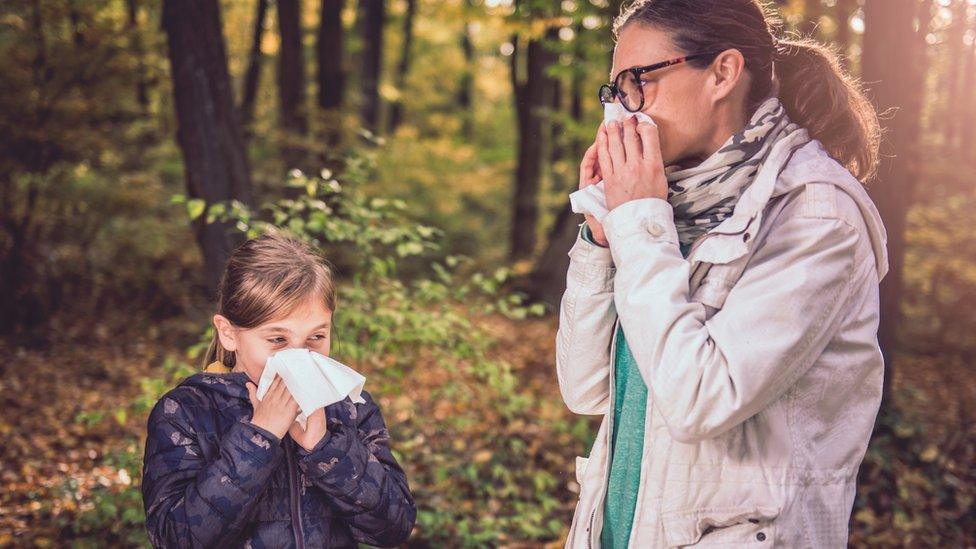
Hay fever is an allergy and people who have it are allergic to pollen.
Pollen is a type of fine powder which is released by lots of different plants and trees.
Pollen also has proteins in it which can cause your nose, eyes and throat to become swollen or irritated if you are allergic to it.
If you have hay fever you might suffer from itchy eyes or a runny nose, because your body is trying to protect itself by getting rid of the pollen.
WATCH: What is Hay fever and how does it affect people?
Who is likely to get hay fever?
Hay fever is one of the most common allergies in the UK, affecting about 13 million people.
You can get it at any age, although it usually starts when you are young.
Not everyone has hay fever, but it is more common in people whose family members already have it or if you have asthma.
Hay fever is also more common in people with other allergies.
People can be affected by different types of pollen as well.
For example, there is a lot of tree pollen in the spring, grass pollen in the summer and weed pollen in the autumn.
Tips for dealing with hay fever symptoms
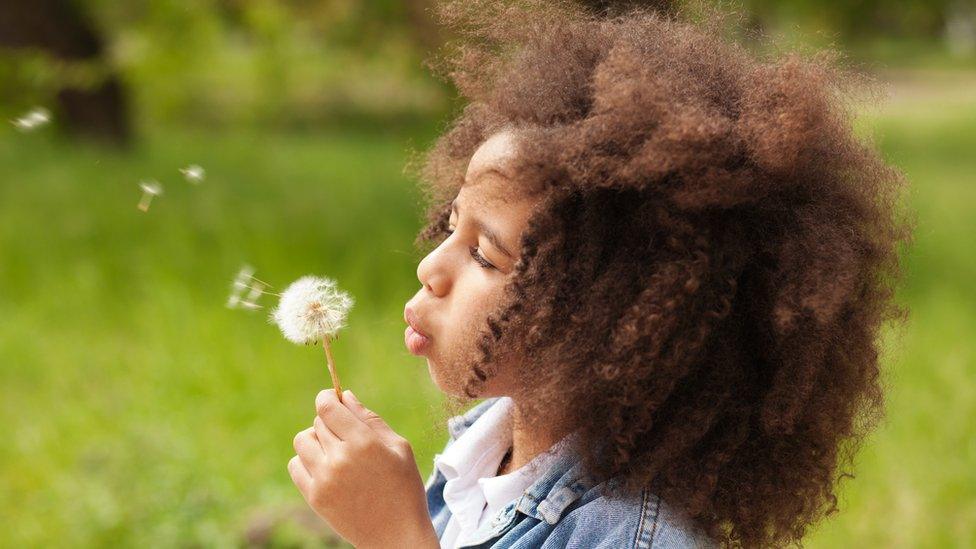
Different types of plants give out pollen at different times of year.
Although there is no cure for hay fever, people who have it can manage the symptoms in many different ways.
Top tips include:
Wearing sunglasses to help block some of the pollen from getting into your eyes.
Avoiding freshly cut grass.
Changing your clothes if you have been outside.
Not spending too long outside in the early evening when the pollen count can be higher.
Closing your windows at night-time.
Can medicine help?
Sometimes special medicine called antihistamines or steroids are used to help prevent a reaction and reduce the swelling.
Always talk to your doctor for advice before taking any medication. They can also discuss different ways of treating hay fever symptoms.
- Published12 June 2013
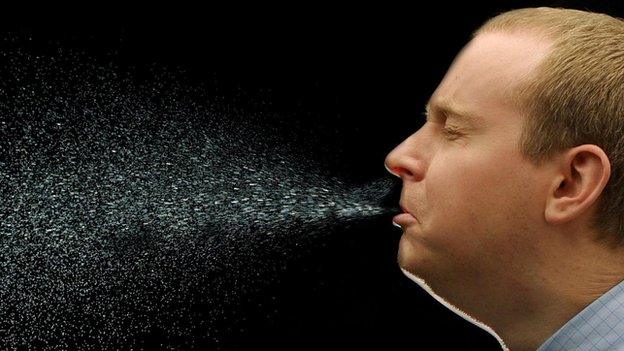
- Published12 June 2013
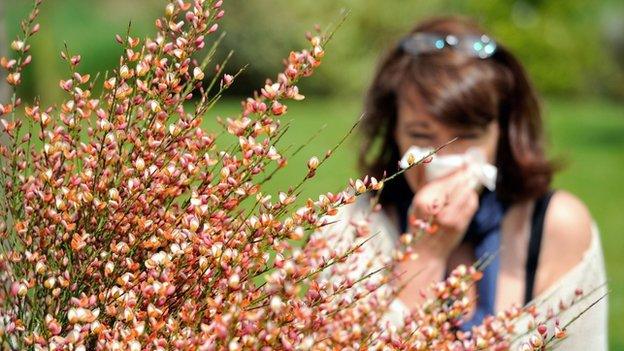
- Published20 May 2017
